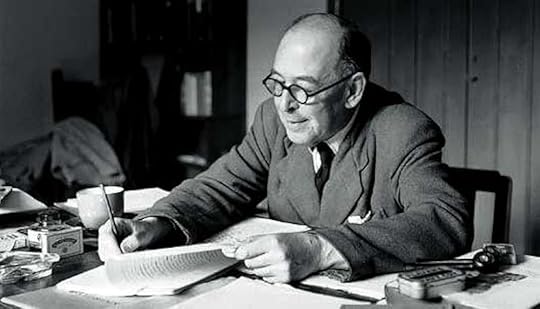C.S. Lewis: A Man Not of His Time

Home of both the ill-fated Titanic and DeLorean car, one might wonder what exactly Belfast is good at producing. Though, in fairness, the Titanic was captained by an Englishman, and the CEO of DeLorean was a charismatic American hustler. Well it turns out that we’re pretty good at birthing musicians (Van Morrison), poets (Seamus Heaney), and storytellers. This last category brings me to Belfast born C.S. Lewis.
Lewis was a type of Renaissance man equally at home writing novels, essays, poems, academic texts and popular religious apologetics. One of his greatest passions however was in sitting with friends discussing literary and philosophical ideas, particularly as they related to Christianity.
I’ve been spending the last couple of weeks immersed in his work (for reasons I’ll explain below), and have found it to be a rather strange and challenging experience. I’ve been deeply impressed by his prose, his counter-intuitive reversals, his fearless engagement with the latest philosophical and theological conversations, and his incisive takedowns of the latest intellectual fads.
While he was extremely popular in his day, he was a man ill at ease with his day. This was most apparent in his rejection of the common move in which a person would judge ancient literature against the latest thinking. For Lewis, the truly difficult, and life giving task, lay not in standing above our ancients, judging them by our standards, but precisely by sitting at their feet and humbly letting them judge our world by their standards. In doing so he felt that we would see our contemporary world in a different light, one that would expose some of its hidden problems and prejudices.
Perhaps what made him feel so relevant to so many lay in the fact that he was so at home in a different world, a foreign one that enabled him to perceive the weaknesses in our own. Indeed, he was not only able to live in an ancient world that spoke to our own, but was most famous for his ability to conjure up fantasy worlds that did the same.
Not that the experience of reading Lewis has been one of agreement. Lewis’ description of “mere Christianity,” often appears to me to be a very modern construct held together by many very modern presuppositions. I’ve found myself wanting to stop and question him multiple time, to challenge his ideas, engage with his thinking and debate with him.
Which brings me to the reason why I’m reading him so closely.
A few months ago, while sitting in the C.S. Lewis café in his native East Belfast, I had the idea of running a small four-day retreat that would explore his legacy, visit the places that meant the most to him, and involve fireside conversations reminiscent of his Inklings group. All occurring in and around the timeless comfort of the Old Inn – Lewis’ favourite hotel – located beside the forest that inspired Naria.
If there were enough interest in this idea I’d aim to run it in September/October of this year (otherwise I’ll look at 2017). If you have any interest in being part of this, drop me a line here.
Peter Rollins's Blog
- Peter Rollins's profile
- 314 followers



